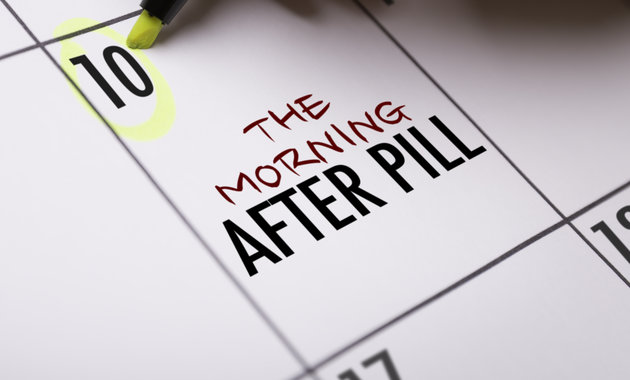
Morning-after pill is like a boon for women who tend to forget taking contraceptive pills to prevent unwanted pregnancy or experience a condom break during sexual intercourse. It acts as a back-up plan and hence, also known as emergency contraceptive pill. Choosing what to do about an unwanted pregnancy can be a very hard decision to make. Thankfully, with the introduction of emergency contraceptives, numerous unwanted pregnancies have been successfully nipped in the bud. However, what most women need to know is the fact that morning-after pill is not a primary form of birth control and should only be used in the case of emergency. Moreover, it should not be confused with pills used to induce abortion. In this article, we share some of the must-to-know facts about morning-after pill.
Morning-After Pill: Common FAQs Answered
Emergency contraceptives or “morning-after pills” and are relatively new to the medical world, and many women may be unaware of their usage, advantages, and side-effects. Here are some of the important questions that may cross your mind in case you need to take an emergency pill.
What Is An Emergency Contraceptive Pill?
Emergency contraceptive pill is a type of birth control pills which can help prevent unwanted pregnancy when taken within a few days after unprotected sex. It is usually effective and should never be taken as a regular contraception. Most emergency birth control pills are composed of a progesterone-estrogen combination called ‘Levonorgestrel’.
When To Take An Emergency Contraceptive Pill?
As the name suggests it is an emergency contraceptive that needs to be taken within 24-72 hours of having an unprotected sex. The pill should be taken orally. Also, the sooner you take the pill, the better it is because as time pas by the pill becomes less effective. Most of these pills are advised to be taken within 72 hours. So check the instructions on the pill before you take one as there are numerous brands of emergency contraceptive pills available in the market.
Check out the new range of contraceptives for men and women now.
How Effective Is Emergency Contraception?
A majority of the emergency pills have a success rate of 95% if taken within 24 hours. The rate of success decreases with the passage of time after unprotected intercourse. Even though these pills can work up to 72 hours, they should be taken as soon as possible to avoid any risk of pregnancy.
How Does Emergency Birth Control Work?
Depending on your reproductive cycle, the emergency pill works by delaying ovulation (the release of an egg from the ovary) and disrupting the fertilization of the egg with the sperm. It may also prohibit the implantation (attachment) in the uterus, even after fertilization has occurred.
Does It Protect Against Sexually Transmitted Diseases?
Emergency pills do not protect against the risk of sexually transmitted diseases and HIV. Condoms should always be used to prevent these diseases as they are safe and effective methods of contraception. Also, these pills should not be mistaken for abortion pills.
How Safe Are These Pills?
Emergency birth control is a rapid and action-driven process. The dosage is usually strong, and regular usage is strictly not advised. Some pills are absorbed into the system and remain active for up to 7 days, while others are never absorbed. The pills are safe if taken in a cautious and responsible manner. However, there may be some side effects such as nausea, fatigue, headache and stomach cramps due to hormonal imbalance. Periods may start early or even get delayed.
**Consult India’s best doctors here***
Morning-After Pill: Tips To Keep In Mind
Although emergency pills are effective in a majority of cases, professional consultation along with proper precautions is always advisable. Ensuring the proper intake of water and a healthy diet is highly recommended for combating the side effects of emergency contraception. Additionally, here are a few tips to keep in mind if you have already taken or plan to take morning-after pill.
One of the common side-effects of emergency contraceptive pill is irregular and lighter periods. However, if you do not get your periods within three weeks after using this medicine, it is wise to do a pregnancy test to make sure you are not pregnant.
Vomiting within three hours of taking this pill do not let the constituents of the pill to be properly absorbed by the body which can render the pill ineffective. Take another pill in such cases to avoid unwanted pregnancy.
Women who are overweight and obese may have a reduced effect of the pill. This is why it is recommended to talk to your gynaecologist before taking this pill to know the right dosage of the pill and the right method of contraception.
Although there is no set rule on how often you should take morning-after pill after an unprotected sex, it is not recommended to take it on a regular basis like daily contraceptive pills as it can lead to certain health effects over long-term. In such a case, thinking about long-term contraception options to prevent unwanted pregnancy is the best bet.
Remember!
Emergency contraceptives should not be used as a primary method of contraception. Instead, regular birth control methods like condoms and use of intrauterine devices (IUDs) are highly recommended for prevention of unwanted pregnancy. Also, these pills do not work if pregnancy has already occurred and this is the reason why emergency contraceptives are not 100% effective in the prevention of pregnancy.
(The article is reviewed by Dr. Swati Mishra, Medical Editor)
Recommended Reads:
Contraceptives For Women: 5 Safe Options
9 Condom Mistakes You Should Never Make!